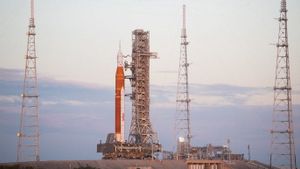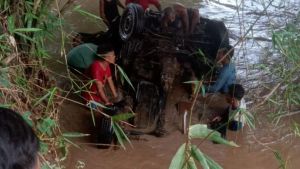JAKARTA - Scientists hope that humans will not be careless when facing the potential for extraterrestrial life. A new group at the University of St Andrews in Scotland even wants to devise a plan for what to do if humans encounter aliens on Earth.
With the help of experts from around the world, they will draw up robust protocols and treaties, as well as assess evidence of intelligent civilization.
Their preparatory work will take place at the university's new research center, dedicated to the search for extraterrestrial intelligence (SETI).
"Science fiction is flooded with explorations of the impact on human society following the discovery of, and even encounters with, life or intelligence elsewhere," said Dr. John Elliott, computer scientist, and coordinator of the SETI Post-Detection Hub, as quoted by the Daily Mail.
“But we need to think further about its impact on humanity. We need to coordinate our expert knowledge, not only to assess evidence, but also to consider human social responses as our understanding develops and what we know and what we don't know is communicated. And the time to do this is now," added Elliott.
According to Elliott, scanning signals assumed to be extraterrestrial for language structure and attaching meaning is a complex and time-consuming process in which our knowledge will advance in many steps as we study "Extra-Terrestrial".'
The group also feels that attention is paid to the consequences to society if alien intelligence is detected.
While the United Nations has processes and entities established for the threat of asteroid impact, there is nothing similar for extraterrestrial life.
In June, NASA announced the launch of its first study of unidentified aerial phenomena (UAPs), also known as UFOs.
Over the course of nine months, scientists looked at the current data into STEAM, and determined which sightings occurred naturally or were not worthy of further investigation.
The Hub researcher wrote: “Social interest has increased tremendously recently, due to the detection of thousands of planets around distant stars in our own galaxy and, closer to home, through exploration of nearby worlds such as Mars and Venus, searching for signs of life, present or past."
"The potential discovery of microbial life is likely to raise the kinds of concerns that will follow the discovery of intelligent life, we are not yet fully prepared as a species for the latter," added the Hub researchers.
SETI's Post-Detection Hub provides the first permanent 'home' to develop a comprehensive framework for what happens after an alien radio signal is picked up.
Scientists will manage the full process of searching for evidence, confirming detection, analyzing and interpreting language patterns, and managing potential responses. They will work with academics in the sciences and humanities as well as members of the SETI community.
They will also coordinate with policy experts on message decoding, data analysis, space law, regulatory development, and social impact strategies, to help close policy gaps.
“Are we going to get a message from E.T.? We don't know. We also don't know when this will happen," Elliott said. "But we know that we cannot be unprepared, scientifically, socially and politically without a rudder, for an event that could turn into reality as early as tomorrow and which we cannot mismanage."
In July, a study found that aliens can send messages through interstellar space using quantum communication.
A team from the University of Edinburgh ran calculations on the movement of X-rays across the void of space to see if they would encounter any obstructions.
Quantum particles, such as photons of light, are fragile and can easily decompose if they encounter any disturbance, such as from a gravitational field.
But it was determined that quanta could survive a journey of at least hundreds of thousands of light years, a greater stretch of distance than the entire Milky Way galaxy.
SEE ALSO:
This is largely due to the very small average density of matter in space, reducing the chances of quantum particles being flung off course.
The level of information that can be transferred safely using quanta at high speeds could make it a viable method of communication for other life forms, according to the researchers.
There are currently no known objects that naturally transmit quantum messages that could be mistaken for alien signals, the researchers claim.
At the moment it's just speculation, but research gives experts another sign of life to watch out for.
"In principle, it should be possible to detect quantum signals coming from astrophysical bodies or even intelligent signals from extraterrestrial civilizations," Elliott said.
The English, Chinese, Japanese, Arabic, and French versions are automatically generated by the AI. So there may still be inaccuracies in translating, please always see Indonesian as our main language. (system supported by DigitalSiber.id)


















